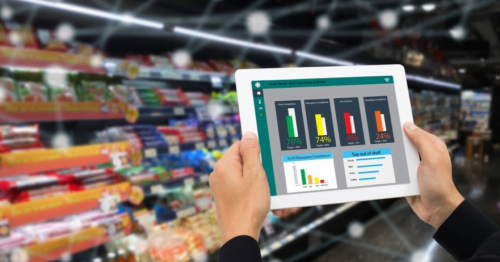
Be it traditional or non-traditional sector, technology is transforming all industries. Retailers that take up business finance to invest in new technology are also enjoying benefits in terms of making more potential clients, understanding purchasing patterns, and obtaining access to client requirements.
Also Read: Artificial Intelligence- Transform The Retail Client Experience In 2019
Big data and AI (Artificial Intelligence) are two areas in which many retailers ponder while moving technologies. Sometimes the use of big data lends itself to predictive analytics, the practice of utilizing current and historical data for making future predictions. Predictive analytics help retailers become highly competitive in the market. This is why many of them have selected this way. In short, big data and AI are beneficial and a part in reshaping the retail sector.
Predictive Analytics and Big Data in Retail
The market for predictive analytics software is developing. In retail, there are various use cases for predictive analytics, which provide organizations a competitive edge in the market.
Also Read: AI – The Next Big Game Changer In The Hospitality Industry
1. Understanding and targeting consumers
In the retail industry, it’s important to understand clients to make targeted campaigns. Since buyers now want customized recommendations, retailers should utilize data for offering this. Retailers require data regarding their clients and sometimes self-reporting fails. Nevertheless, depending on big data offers retailers the data they require.
With the help of big data, retailers can collect external data, transaction, and interaction. All of this information offers a global view of the client that retailers can utilize for making targeted campaigns. This data helps retailers measure who will purchase and when and make exclusive offers.
2. Price optimization
Retailers should price products correctly since businesses want to sell. Prices must not be very low or very high. Predictive price analytics consider customer’s interest in the product, historical product pricing, competitor pricing, inventory, and margins to figure out the best price for every product. This price decides the maximum profit.
Also Read: Become A Digital Business – The Way Forward For Retailers In 2019 & Beyond
3. Inventory management
Inventory handling can be stressful for many retailers. Particularly around festive seasons, retailers don’t want to end up with lots of stock of some products. If it happens, they generally require putting these products on sale. To fix the inventory issue, retailers utilize predictive analytics to predict inventory requirements.
4. Company prediction
Predictive analytics offers exact revenue prediction so retailers understand income at any point of the year. Retailers won’t require guessing what will occur amid busy or slow months. Predictive analytics can precisely predict sales and help businesses plan accordingly.
Also Read: How Customer Intelligence Is Shaping The Future Of Retail Industry
Enhancing Retail with AI
Another area changing the face of the retail sector is AI (Artificial Intelligence). AI also depends on big data and helps revolutionize the shopping experience. Here is what organizations are presently utilizing and where this technology will take the sector.
1. AR (Augmented Reality) and VR (Virtual Reality)
These are two kinds of technology which harness the power of AI for transforming the users’ perception and there are lots of use cases for both in the retail sector. Retailers will possibly use AR in advertising shortly. Buyers will encounter products either viewing them or virtually trying them at home before purchasing through immersive product catalog visualization. Both AR and VR technologies combine online and offline encounter for shoppers and this technology will certainly develop soon. For now, these experiences are kept in-stores.
2. Chatbots
Big brands previously were using this technology but now SMEs are also utilizing this. Chatbots enable brands to connect with their consumers and now that is more crucial than in the retail sector. It helps shoppers through the online shopping experience, with tailored recommendations.
Apply for Retail Business Loan
Trendiest Technologies Are the Way Forward In Retail
Now more customers are seeking advanced technology in their buying experience and retailers should comply for staying competitive. And this is why big and small brands are taking up business loans like a Merchant cash advance from alternative lenders like Indifi to invest in big data and AI. This helps them offer better client experience.
This is no more simply a mobile experience clients want. Currently, they seek a modified reality or connected encounter while buying offline and online. To offer clients such experiences, retailers should use big data and AI. These technologies enable retailers to know which technology to invest in, instead of guessing and wasting resources. Retailers who determine to invest in these technologies will stay competitive in the market and gain loyal brand followers. As a result, this will improve sales and brand awareness.






